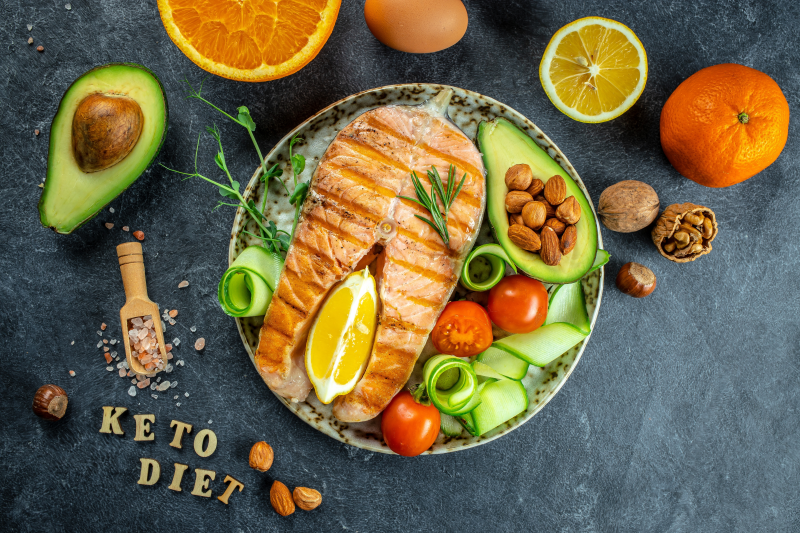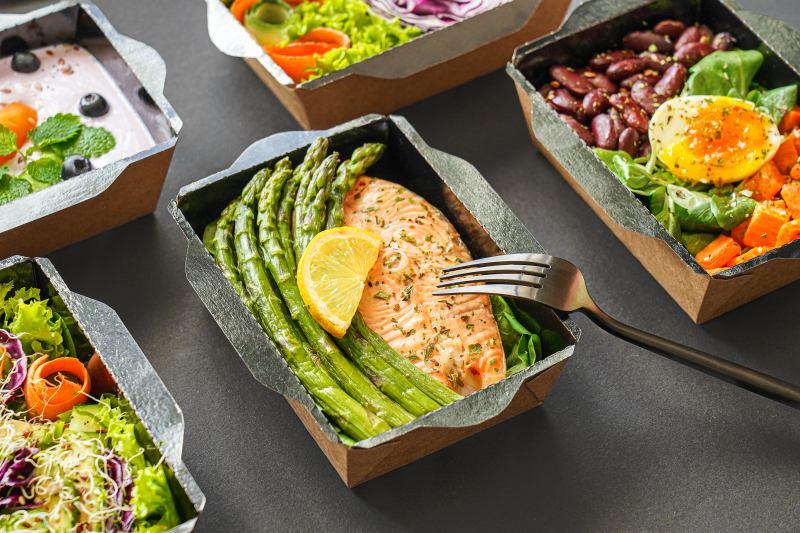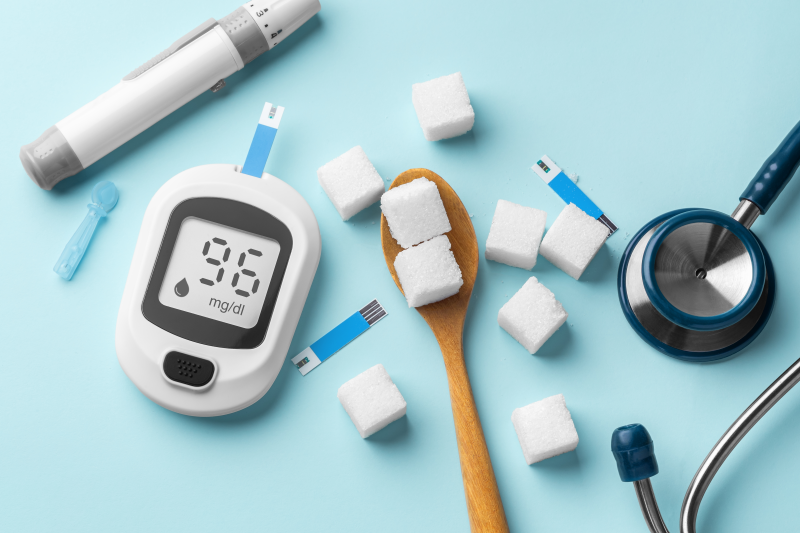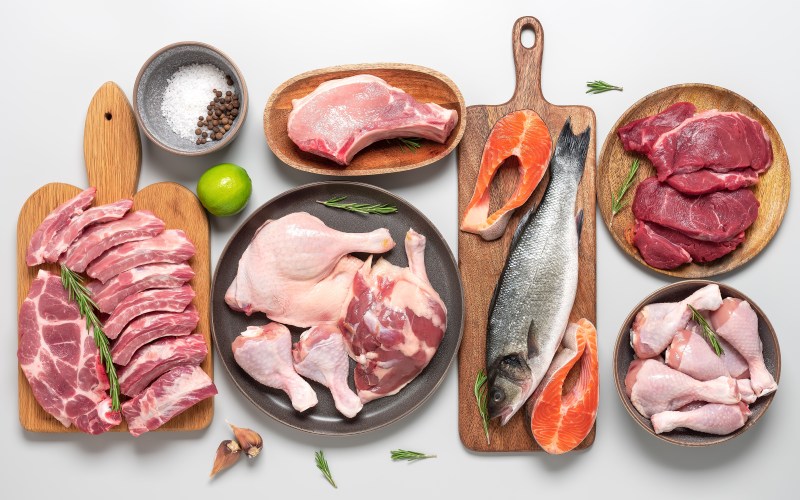At a glance
A pescatarian diet is the most diverse adaptation of the vegetarian diet. By adopting keto principles and carefully planning meals for optimal nutrient density, a pescatarian keto diet can support healthy fat metabolism while minimizing the risk of nutrient deficiencies.
A pescatarian diet is a modified vegetarian diet that includes fish and seafood, while the ketogenic diet aims to limit carbohydrate intake to trigger and maintain ketosis.
A pescatarian keto diet may benefit those who are interested in increasing their intake of omega-3 fatty acids while following a low-carb eating plan.
Explore the differences between a pescatarian and ketogenic diet and discover the benefits and drawbacks of combining these two dietary approaches.
What is the pescatarian diet?
The pescatarian diet follows the basic principles of a vegetarian diet but includes eating fish and seafood. Pescatarians typically consume a variety of whole grains, fruit, vegetables, dairy products, and eggs.
Pescatarians can eat a range of seafood, including fish, shellfish, and other aquatic life. Though the diet focuses on whole foods, processed fish-based foods, such as fish sticks or imitation crab, are also acceptable.
Pescatarians don’t eat meat derived from land animals, including cows, sheep, and chickens, which is often motivated by concerns about animal welfare and environmental impact.
However, some opt for a pescetarian diet to obtain ample essential fatty acids, including eicosapentaenoic acid (EPA) and docosahexaenoic acid (DHA), which support cardiovascular, eye, and neurological health.
Pescetarianism is a meat-free diet with no strict rules for dieters. While some pescatarians eat fish twice a week, others incorporate seafood daily.
Watch the video below to learn more about eating shellfish on a ketogenic diet.
Pescatarian vs. keto
Pescatarianism is similar to vegetarian diets but emphasizes a plant-based diet with moderate amounts of animal protein.
Though it prohibits the consumption of land animal products, the pescatarian diet allows all fruits, seafood, vegetables, dairy, eggs, grains, and vegetarian or fish-based processed foods in any quantity.
Most pescatarians advise avoiding high-mercury fish like swordfish, shark, and king mackerel, as well as overfished species like bluefin tuna and chemically polluted farmed fish.
Contrarily, the traditional keto diet is a low-carb, moderate protein, and high-fat diet that restricts carbohydrate intake to no more than 50 grams of net carbs daily.
Keto is a stricter diet that aims to trigger ketosis, a metabolic state in which the body burns fat to generate energy instead of using sugar as a fuel source.
Many foods that are acceptable on a pescatarian diet aren’t keto-friendly, including most fruits, sugar, juices, and grains such as brown rice, whole grain pasta, and legumes.
Additionally, while a dirty keto diet may allow processed foods, a Healthy Keto® diet avoids most pre-packaged items, which are typically loaded with preservatives, artificial flavors, and other synthetic ingredients.

Combining a pescatarian diet with keto
Starting a pescatarian ketogenic diet can be challenging for those who follow a high-carb diet or consume processed foods. However, it can provide many benefits to support overall health and well-being.
Understanding a ketogenic diet’s basic concepts is key to a smooth transition into a low-carb pescetarian lifestyle.
Keto follows a strict macronutrient intake, focusing on high-fat, moderate protein, and low-carb meals to trigger and maintain ketosis. To achieve this metabolic state of fat-burning, 70 percent of daily calories should be obtained from healthy fat, 20 percent from protein, and 10 percent from carbohydrates.
While a low-carb diet includes various meats, a nutritious pescatarian keto plan focuses solely on fish and seafood, provided it’s wild-caught to minimize exposure to heavy metals and contaminants.
In addition to limiting carbs and incorporating seafood, it’s recommended to consume seven to ten cups of non-starchy vegetables and leafy greens daily, such as kale, asparagus, broccoli, Brussels sprouts, cauliflower, and large salads. This ensures optimal intake of essential nutrients such as vitamins, minerals, and fiber.
Other foods include healthy fats, such as avocados, butter, olive oil, nuts, seeds, eggs, organic full-fat dairy products, and small amounts of berries.
Processed snack foods, ready-made meals, sugar, most fruits, cereals, and grains commonly consumed on the pescatarian diet aren’t keto-friendly and should be avoided on a low-carb diet.

Benefits of pescatarian keto
A pescatarian ketogenic diet is rich in heart-healthy seafood, non-starchy vegetables, nuts, and seeds, offering essential nutrients and antioxidants that can support general wellness and reduce the risk of chronic diseases.
Here are four health benefits of a pescatarian keto diet.
1. May enhance brain and eye health
Eating a ketogenic diet rich in seafood, especially fatty fish, naturally boosts your intake of omega-3 fats, a group of essential fatty acids that play a vital role in brain development.
These fats are concentrated in the hippocampus and gray matter of the brain and promote optimal cognitive function, including learning and memory. Eating more fish may also reduce the risk of developing neurodegenerative diseases, such as Parkinson’s and Alzheimer’s disease.
Omega-3 fatty acids are also found in the retina, where they moisturize the eyes and protect against age-related macular degeneration, a leading cause of vision loss.
“Fish isn’t just good for your brain but also supports your vision due to its high concentrations of DHA,” explains Dr. Berg. “DHA is a vital structural component of the retina that maintains photoreceptors needed to process light.”
2. Supports weight loss
A whole food-based ketogenic diet can trigger substantial weight loss by shifting the body into fat-burning mode. Without sufficient carbohydrates for energy, the body enters ketosis, where it relies on stored body fat and dietary fats as its primary fuel source.
Additionally, omega-3 fatty acids can enhance energy-making processes linked to improved weight management. Adequate fish and seafood intake also has been found to reduce the risk of obesity, insulin resistance, diabetes, and metabolic syndrome.
A study published in Nutrition and Metabolic Insights found that those who consumed fish lost four pounds more than the control group after eight weeks.1

3. Promotes metabolic health
A low-carb diet has profound metabolic benefits, greatly reducing the risk of metabolic imbalances, including insulin resistance.
A high-carb diet prompts the release of insulin, a key hormone needed to regulate blood sugar. Over time, consistently high blood sugar can lead to insulin resistance, a condition characterized by cellular unresponsiveness to insulin and a loss of blood sugar control.
This results in chronically elevated blood sugar levels that can contribute to chronic diseases, such as diabetes, high blood pressure, cardiovascular disease, and polycystic ovarian syndrome (PCOS).
Limiting carbohydrate intake stabilizes blood sugar and insulin levels, which improves energy production, reduces hunger and cravings, and decreases disease risk.
4. Helps prevent chronic inflammation
Chronic inflammation can harm cellular structures, DNA, and body tissues, potentially leading to chronic diseases, accelerated aging, and an increased risk of conditions such as heart disease and cancer.
Both the keto diet and fish consumption have been shown to reduce inflammation in those at risk of cardiovascular disease, diabetes, rheumatoid arthritis, and psoriasis.
A study published in Nutrition Reviews found that a ketogenic diet lowered key inflammatory markers, including tumor necrosis factor-alpha (TNF-?) and interleukin (IL-6). These markers regulate inflammatory responses and are often associated with heat, swelling, pain, and redness.2

Downsides of pescatarian keto
Though a well-planned pescatarian keto meal plan can be considered a healthy diet, there are a few downsides to consider before making the switch.
Here are three disadvantages of a seafood-based ketogenic diet.
1. Potential nutrient deficiencies
A pescatarian ketogenic diet may cause or exacerbate nutrient deficiencies, as plant-based diets lack many of the nutrients found in red meat, including iron, vitamin B12, and glutathione.
These nutrient deficiencies are more likely to develop if you aren’t planning on regularly consuming fish or are avoiding eggs and dairy. This can lead to deficiency symptoms, including anemia, loss of bone density, fatigue, weakness, neurological issues, and mood disorders.
2. Pollutant and heavy metal exposure
Farmed fish are often contaminated with pollutants, such as pesticides, polychlorinated biphenyls (PCBs), and dioxins. These industrial chemicals are linked to liver damage, cancer, and skin conditions.
A study published in Environmental Health Perspectives found that “…concentrations of dioxins, PCBs, polybrominated diphenyl ethers, and pesticides, among other contaminants, are significantly higher in farm-raised salmon.”3
Choosing wild-caught fish can reduce your exposure to toxins. Additionally, consider avoiding farm-raised seafood, which often is fed animal byproducts and manure.
It’s also recommended to avoid larger fish species, such as swordfish, sharks, and king mackerel, which are at higher risk of mercury contamination. Heavy metal toxicity can lead to kidney damage, neurological disorders, and gastrointestinal damage.

3. Restrictive dietary pattern
A pescatarian keto diet is more limited than a traditional pescatarian or ketogenic eating plan, which can be challenging to sustain.
Unlike the pescatarian way of eating, a seafood-based keto diet restricts whole grains, starchy vegetables, beans, fruits, sugars, and processed foods.
Additionally, pescatarian diets omit other animal proteins, such as red meat, which is rich in vitamins and minerals, including B vitamins, iron, and zinc.
Red meat from beef and lamb are also some of the best sources of carnitine, creatine, and carnosine. These amino acid complexes help convert fat into energy, support brain function, speed up muscle boost recovery, and reduce the risk of diabetes and other chronic conditions.
Key takeaways
- The pescatarian diet is the most inclusive form of vegetarianism, incorporating a variety of seafood, eggs, dairy, and plant-based foods.
- Adapting a pescatarian diet to a Healthy Keto® plan involves limiting carbohydrates and processed foods while emphasizing whole foods and healthy fats from sources such as fish, eggs, nuts, and olive oil.
- A well-planned Healthy Keto pescatarian diet can support fat metabolism, help maintain stable energy levels, and promote nutritional balance.
- Combining these diets can be more restrictive than a standard pescatarian or Healthy Keto diet alone and may require extra preparation to ensure food quality and avoid nutrient gaps.
FAQ
1. What foods do pescatarians eat?
Pescatarians eat a mostly vegetarian diet rich in plant foods such as whole grains, nuts, seeds, fruit, and vegetables and consume fish and seafood as their primary protein source.
2. Can you eat eggs as a pescatarian?
Yes, pescatarians eat eggs and other animal products, such as cheese and yogurt. However, some may avoid eggs and dairy products over animal welfare concerns.
3. Is a pescatarian diet good for weight loss?
A pescatarian diet can enhance weight loss if it focuses on fish consumption and low-carb, plant-based foods.
However, a pescatarian diet that includes sugars, processed foods, and high-carb meals may not support weight loss and may, in fact, lead to weight gain.
4. Can pescatarians eat cheese?
Yes, pescatarians can eat cheese and other dairy products, including yogurt, butter, and milk.
5. Can you eat shellfish on a pescatarian diet?
Yes, shellfish, fish, and other seafood, including squid, octopus, sea urchin, and caviar, are acceptable on a pescatarian diet.
6. Is it possible for pescatarians to do keto?
Yes, pescatarians can follow a keto diet by abstaining from carbohydrates, such as fruit, sugar, cereals, and grains. A ketogenic pescatarian diet involves eating no more than 50 grams of net carbs daily and focuses on various seafood, low-carb vegetables, nuts, seeds, dairy, and eggs.
Sources
- https://www.ncbi.nlm.nih.gov/pmc/articles/PMC8182174/ ?
- https://pubmed.ncbi.nlm.nih.gov/38219223/ ?
- https://www.ncbi.nlm.nih.gov/pmc/articles/PMC1257546/ ?


















